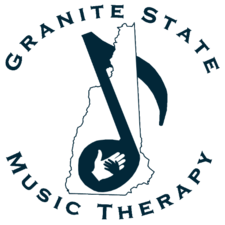
IEPs
What is an IEP?
The Individualized Education Program (IEP) is a specific plan for instruction, services, and supports provided to students with support needs or disabilities.
The Individuals with Disabilities Education Act (IDEA) requires appropriately trained professionals be made accessible for students who need them.
An IEP team is made up of the parents/guardians, teachers, paraprofessionals, therapists, and other related service providers and advocates depending upon the structure of the school district and the needs of the student.
IEPs are routinely re-evaluated to ensure that the goals are continuing to draw from the student’s strengths and build upon their areas of challenge in the best way possible.
Goals are measurable and specific, written with the intent that students are supported in skills that are generalized into many areas of their lives.
Music Therapy
Yes, music therapy can be a related service under the IDEA! This is not new information, but some districts are unfamiliar with the ways in which music therapy supports a child’s IEP.
The information below will helpfully give you an idea about how to begin the process of assessing a student for music therapy services and having it included on their IEP.

Information provided here has been gleaned from a highly valuable podcast episode put out by the American Music Therapy Association.
The speaker Judy Simpson is the Director of Government Relations for AMTA, as well as a board certified music therapist and mom to a special needs child. Her unique perspective continues to support families with questions about services from a position of experience.
First step, write a request!
If you’re curious, request a music therapy assessment be completed by a board certified music therapist. This request should be made in writing, and addressed to your school district. The person that receives it may be dependent upon the structure of the district. It may be the superintendent, principle, or director of special education. If you have an IEP in place, the person who runs the IEP meetings for your child will field this kind of request.
Sometimes districts are unaware that music therapy is a related service, and may benefit from some education about the service following this kind of request. There are a number of resources available through the AMTA for education about services, which may be a good place to start.
Fact Sheets
-
Bibliographies
-
Population Specific
-
Strategies
-
Parent Resources
-
Fact Sheets - Bibliographies - Population Specific - Strategies - Parent Resources -
Next step, music therapy assessment!
The standardized assessment process carried out by a music therapist results in the ability to determine whether or not music therapy is necessary for the child.
The assessment determines whether or not the child needs music therapy to fully benefit from their special education.
Sometimes, educating a school district involves explaining the difference between music therapy and other uses of music within the child’s curriculum (i.e. music education, adaptive music, music in the classroom). Music therapy is unique in that it addresses the academic, social, behavioral, cognitive, and communication goals within the service. Music is not the “end goal” of the service, but rather the medium by which the goals are reached.
Music therapy may look like…
-
Providing a Direct Service
-
Providing a Consult Service
-
Working with the Teachers
-
Working with other Service Providers
Why?
Students benefit from having music therapy on their IEPs in a number of ways.
Children often respond to music with more excitement, motivation, and openness than other therapeutic methods.
For some children, they are able to focus and engage more in a structured, academic environment than at home.
Working with an IEP team and not relying on at-home services can relieve some of the financial strain on families with children who have complex needs.


